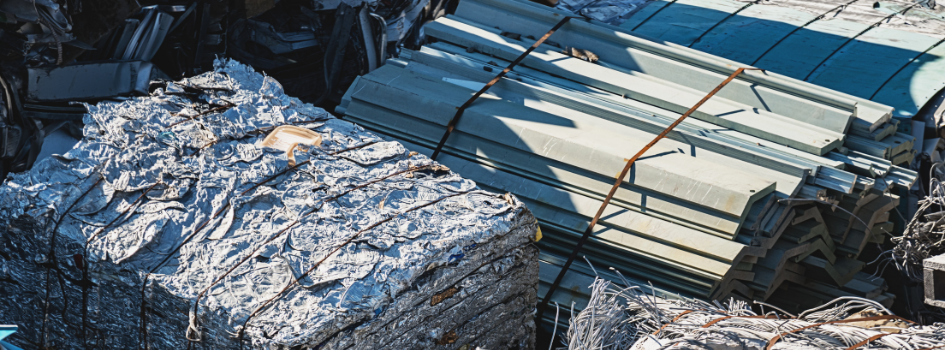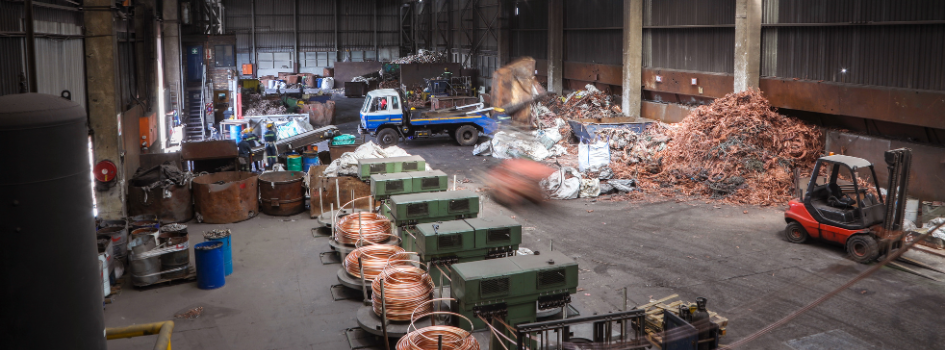
How to Implement Effective Industrial Recycling Programs
In a world increasingly focused on sustainability and environmental responsibility, implementing effective industrial recycling programs is not just a choice — it’s a necessity. These programs not only reduce your company’s ecological footprint but can also result in significant cost savings.
So, if you’re looking to create a successful recycling program within your industrial setting, you’re in the right place. The experts at DXP have outlined the key steps and strategies to get started on the path to a greener, more sustainable future for your organization.
Understanding the Importance of Industrial Recycling
Industrial recycling refers to the process of collecting, sorting, and processing various materials generated by industrial operations to be reused or repurposed rather than disposed of as waste. It encompasses a wide range of materials commonly produced in industrial settings, including metals, plastics, paper, cardboard, glass, electronic waste (e-waste), and more.
Implementing an industrial recycling program isn’t merely a checkbox for corporate social responsibility; it’s a vital component of responsible business operations. Here are some compelling reasons why industrial recycling matters:
- Environmental Impact: Recycling conserves natural resources, reduces pollution, and minimizes the energy required to create new products.
- Cost Savings: Efficient recycling programs can lower waste disposal costs, potentially generating revenue from recycled materials.
- Regulatory Compliance: Many regions have strict waste disposal regulations. Implementing recycling helps ensure compliance with these laws.
- Brand Reputation: Consumers and business partners increasingly prefer eco-friendly companies. A robust recycling program can enhance your brand image.
- Employee Engagement: Promoting recycling initiatives can boost employee morale and engagement, fostering a sense of responsibility and purpose.
Now that we’ve established the importance, let’s explore how to set up an industrial recycling program that’s not only effective but also tailored to your specific needs.

Key Steps to Implement an Effective Industrial Recycling Program
Whether you’re new to recycling or seeking ways to enhance your existing program, these steps are your roadmap to success. Here’s how to turn your recycling goals into tangible actions that benefit your business and the environment.
1. Assessment and Planning
- Conduct a waste audit to identify recyclable materials and current disposal practices.
- Set clear recycling goals and establish a recycling team responsible for program oversight.
- Understand local recycling regulations and requirements.
2. Employee Engagement
- Educate employees about the recycling program’s goals, benefits, and guidelines.
- Provide training on sorting and disposing of recyclables correctly.
- Encourage employee feedback and involvement in program improvements.
3. Infrastructure and Logistics
- Set up designated recycling bins and stations throughout your facility for easy access.
- Create a well-organized system for collecting, storing, and transporting recyclables to recycling centers or processors.
4. Materials Collection
- Identify the types of materials your facility generates that are recyclable, such as paper, cardboard, plastics, glass, metals, and electronics.
- Choose reputable recycling partners or facilities for each material type.
5. Tracking and Reporting
- Implement a system to track recycling data, including the volume and types of materials recycled.
- Regularly report progress to employees and stakeholders, highlighting achievements and areas for improvement.
6. Continuous Improvement
- Periodically review your recycling program’s performance and identify opportunities for enhancement.
- Stay informed about advancements in recycling technologies and practices.
7. Promote Sustainability Culture
- Organize awareness campaigns and events to keep recycling at the forefront of employees’ minds.
- Recognize and reward employees who actively support recycling efforts.
8. Compliance and Documentation
- Ensure compliance with local, state, and federal recycling regulations.
- Maintain accurate records of recycling activities and documentation for audits or reporting requirements.
9. Evaluate and Adjust
- Regularly assess your recycling program’s effectiveness and make necessary adjustments.
- Consider expanding your recycling efforts to include additional materials or areas of your facility.
10. Celebrate Success
- Highlight your achievements by sharing statistics on waste reduction, cost savings, and environmental impact with stakeholders, employees, and the community.

Implementing an effective industrial recycling program requires commitment, planning, and ongoing effort. However, the benefits, both for your organization and the environment, make it a worthwhile endeavor. By following these key steps and continuously improving your recycling initiatives, you can contribute to a greener, more sustainable future while reaping the economic rewards of responsible waste management.
Achieve Your Sustainability Goals with DXP
Reduce your organization’s environmental impact with DXP. Our comprehensive environmental solutions and expertise in industrial recycling, waste management, and corporate sustainability practices are here to support your journey toward a greener future. Join us in making a positive difference for your company and the planet.
Contact us today to get started on your sustainability journey.

